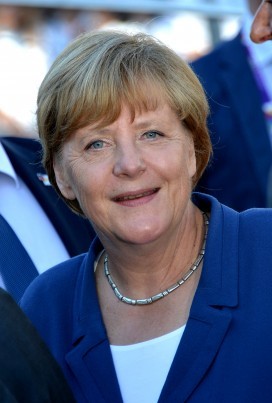Facts about Angela Merkel
Angela Merkel Biography
Angela Merkel became the first woman Chancellor of Germany at her election in 2005. She was re-elected in 2009, in 2013 and again in 2017, making her one of the most powerful European leaders since World War II.
Although she was born in West Germany, Angela Merkel was raised in East Germany. She studied physics at the University of Leipzig (1973-78), and worked as a chemist and researcher in East Berlin, earning a doctorate in 1986 from the German Academy of Sciences.
Merkel spent a dozen years as a scientist, but became politically active in 1989, as the Soviet Union collapsed and post-war Germany began to ponder unification. By 1990, Merkel emerged as a spokesman for East Germany, and her media-friendly zeal led to her election to the legislative body, followed by an appointment to Chancellor Helmut Kohl’s cabinet. With Kohl as her political mentor, Merkel rose in the ranks of the Christian Democratic Union party, but in the late 1990s, when Kohl faced a financial scandal, Merkel publicly distanced herself and secured her position as the party leader by 2000.
Chancellor Merkel’s narrow victory in 2005 forced a coalition government, but by her re-election in 2009, she’d proven herself true to her nickname, “Mutti” (Mommy) — widely seen as a steady guardian of the nation’s interests and one of the most powerful forces in European politics.
After successfully steering Germany through the economic rapids of 2009-2012, Merkel was handily re-elected to a third term in September of 2013. She was named Time magazine’s Person of the Year in 2015, in part for her strong response to that year’s refugee crisis in Europe. The magazine called her the “Chancellor of the Free World.” She was re-elected in 2017, with her party taking 34.7% of the seats in the Bundestag. In what was widely regarded as a disappointment for Merkel, and a protest of her pro-immigrant stance, the far-right AfD (“Alternative for Germany”) party took 13.7% of Bundestag seats in the 2017 elections.
Merkel declined to run again in 2021, and that year’s elections left the rival Social Democratic Party as the largest winner. Merkel agreed to remain in place while negotiations were held to form a new coalition government.

